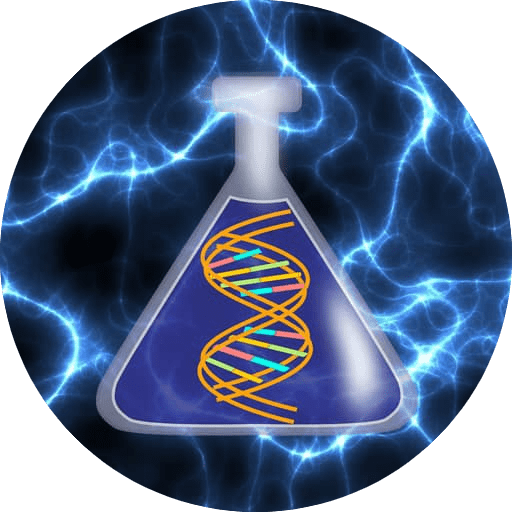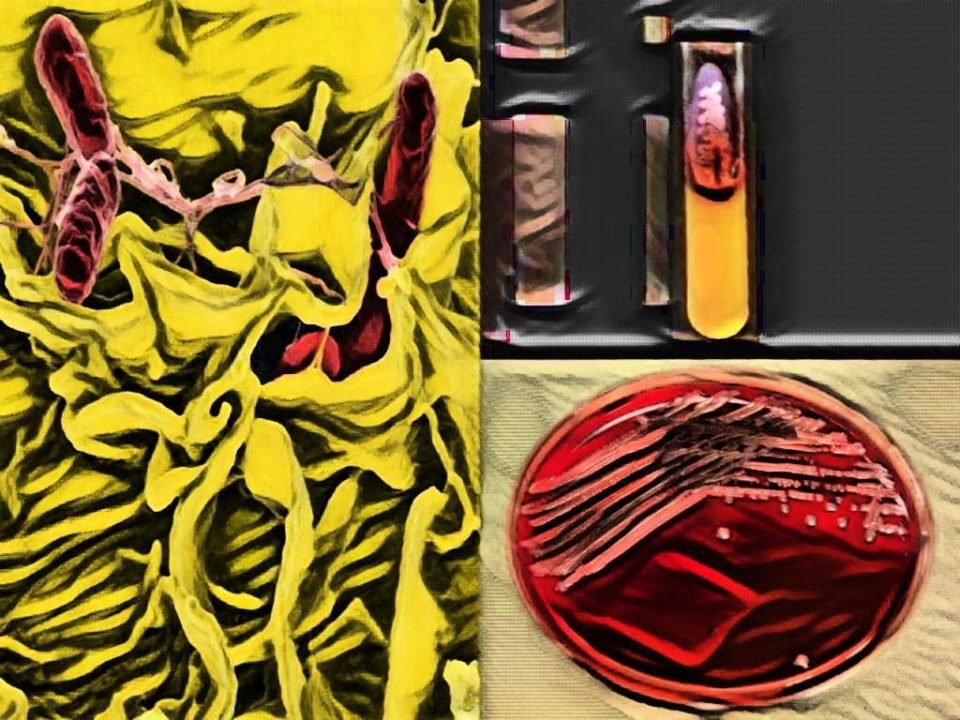Hey, Good to see you here 😀 …… In this Article, we’re gonna discuss in detail about various biochemical tests of Salmonella typhi….. If you have any queries, don’t forget to mention in Comments…Thanks
In this Article, I’m gonna discuss various biochemical reactions for the well known causative agent of Enteric fever, Septicemia & Gastroenteritis i.e. the Salmonella typhi abbreviated as S. typhi.
However, only a few reactions are most commonly used and are medically important for distinguishing pathogenic strains of Salmonella typhi from other non- pathogenic strains as well as from other species of Salmonella which are as follows:
Produces H2S
Indole Negative
Citrate Positive
Urease Negative
Methyl red (MR) Positive
Voges – Proskauer (VP) Negative
Colorless – NLF colonies on MacConkey agar medium
Jet black colonies with a metallic sheen on Wilson & Blair bismuth sulfite medium
Pink or Red Colonies with black center on XLD medium.
Besides that of various biochemical reactions and Sugar fermentation tests, certain enzymatic reactions are also medically important to distinguish Salmonella typhi from other Salmonella sp.
Here is the list of these Enzymatic Reactions and various other biochemical tests for Salmonella typhi which have great importance in research and for knowledge but are not routinely employed in Pathology Laboratories:
TESTS RESULTS
Catalase +VE (POSITIVE)
Citrate +VE (POSITIVE)
H2S Production +VE (POSITIVE)
Methyl Red +VE (POSITIVE)
Nitrate Reduction +VE (POSITIVE)
Coagulase -VE (NEGATIVE)
ONPG -VE (NEGATIVE)
Esculinase -VE (NEGATIVE)
Indole -VE (NEGATIVE)
Oxidase -VE (NEGATIVE)
Arginine Dehydrolase -VE (NEGATIVE)
Ornithine decarboxylase -VE (NEGATIVE)
Tryptophanase -VE (NEGATIVE)
Urease -VE (NEGATIVE)
VP (Voges Proskauer) -VE (NEGATIVE)
TSI (Triple Sugar Iron Agar) Alkali/Acid
Salmonella typhi ferments various sugars producing acid only as S. typhi is anaerogenic bacteria making it easy to differentiate from other species of Salmonella which ferment sugars producing acid with gas.
But these sugar fermentation tests are of no diagnostic value in routine laboratory tests except Lactose & Sucrose fermentation test, which is of great importance in differentiating Salmonella typhi, which is unable to ferment Lactose and Sucrose, from other Pathogenic & non-pathogenic Salmonella species.
The other sugar fermentation tests which are described below are of great importance in research work.
SUGARS RESULTS
Galactose +VE (POSITIVE)
Glucose +VE (POSITIVE)
Maltose +VE (POSITIVE)
Mannitol +VE (POSITIVE)
Mannose +VE (POSITIVE)
Melibiose +VE (POSITIVE)
Sorbitol +VE (POSITIVE)
Trehalose +VE (POSITIVE)
Xylose +VE (POSITIVE)
Adonitol -VE (NEGATIVE)
Arabinose -VE (NEGATIVE)
Cellobiose -VE (NEGATIVE)
Lactose -VE (NEGATIVE)
Raffinose -VE (NEGATIVE)
Rhamnose -VE (NEGATIVE)
Salicin -VE (NEGATIVE)
Sucrose -VE (NEGATIVE)
Dulcitol -VE (NEGATIVE)
That’s all about the various Biochemical tests for Salmonella typhi (S. typhi).
Frequently Asked Questions (FAQs)
Q1. What is biochemical test for Salmonella?
Biochemical tests are used to identify Salmonella, and these include tests for citrate utilization, hydrogen sulfide production, urease activity, and glucose fermentation.
Q2. What is the laboratory test of Salmonella?
The laboratory test for Salmonella involves culturing a sample from the patient on selective media, such as Salmonella-Shigella agar, and then performing biochemical tests to confirm the identity of the bacterium.
Q3. What is the biochemical test and identification of Salmonella Paratyphi?
Biochemical tests for Salmonella Paratyphi are similar to those for other Salmonella species, including tests for citrate utilization, hydrogen sulfide production, and urease activity. Identification can be confirmed through serotyping, which involves identifying the specific antigens present on the bacterial cell surface.
Q4. What are the identification features of Salmonella typhi?
Salmonella typhi is identified through culture and biochemical tests, which include tests for citrate utilization, hydrogen sulfide production, and urease activity. Serotyping can also be performed to identify the specific antigenic makeup of the bacterial strain.
Q5. What chemical test is used for typhoid?
The Widal test is a serological test used to diagnose typhoid fever. It involves detecting the presence of antibodies against specific Salmonella typhi antigens in a patient’s blood sample.
Q6. What is Elisa test for Salmonella typhi?
The ELISA test is an immunological assay that can be used to detect the presence of antibodies against Salmonella typhi in a patient’s blood sample. It is a more sensitive and specific test than the Widal test for diagnosing typhoid fever.
User Review
( votes)
Laboratory Hub aims to provide the Medical Laboratory Protocols & General Medical Information in the most easy to understand language so that the Laboratory Technologist can learn and perform various laboratory tests with ease. If you want any protocol to be published on Laboratory Hub, Please drop a mail at contact@laboratoryhub.com. Happy Learning!

